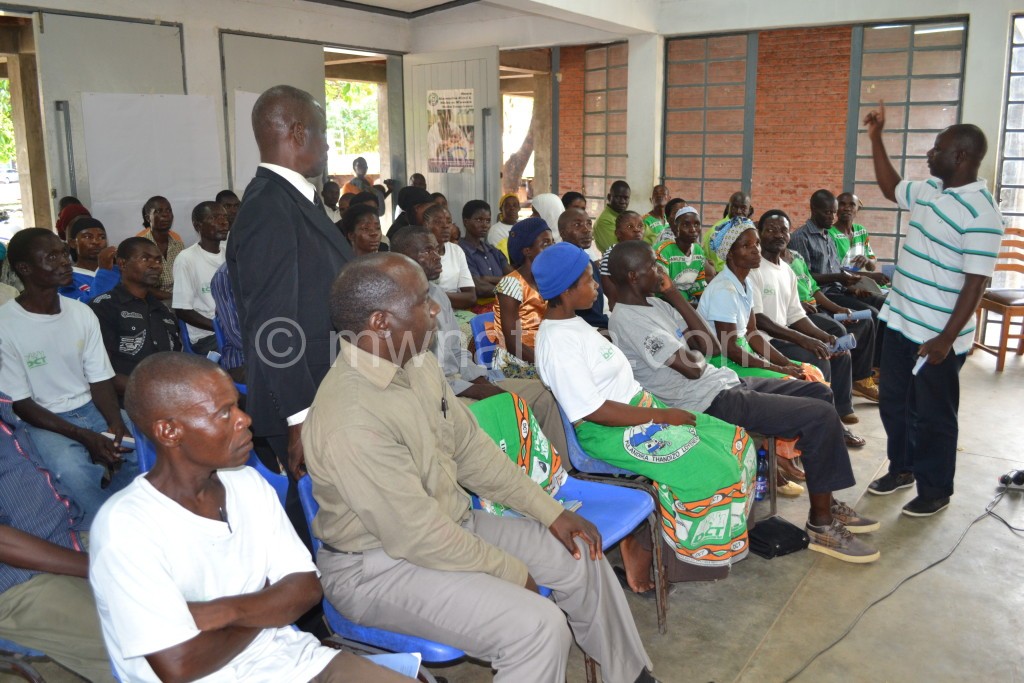Radio clubs enlighten on right to health care
At a meeting of radio listening clubs, one club told of how it had secured an ambulance for a health centre after engaging a member of Parliament (MP) for their area.
The radio listening club from Nkhotakota mentioned, as one of its achievements, the ambulance that the area’s MP donated to the health centre after earlier appeals for help yielded nothing.

But if the members of the club thought they would be praised for managing to woo the law maker to come to the rescue of the health facility, they got a rude shock.
Prince Mtelera, executive director for Development Communications Trust (DCT), told the club that while it was pleasing that it had solved the problem at the health centre, the method used was wrong.
“It is not good to use the power of politicians to get development projects,” Mtelera told the radio listening clubs that operate under the Health Governance Project of the DCT.
The 15 radio listening clubs from Nkhotakota, Salima and Balaka districts gathered in Salima recently to share their experiences under the health governance (TilimbikitseUmoyoWabwino) project.
The project is being implemented with funding from the Tilitonse Fund, and aims at promoting access to health care by educating communities about their health rights.
To ensure that people know their health rights, the radio listening clubs sit down with communities to hear their health problems before presenting them to duty bearers for their response.
The clubs record discussions and send the recordings to DCT for production, from where they are distributed to Malawi Broadcasting Corporation (MBC), Zodiak Broadcasting Station (ZBS) and Nkhotakota Community Radio for airing.
During the two-day meeting, the clubs spoke of how they had removed the animosity that was there between communities and health workers, resulting in improvement in health care delivery.
“Previously, there was no cooperation between health workers and communities. There was a lot of hatred,” Agnes Kalimwayi of Khombedza Radio Listening Club in Salima, said.
Kalimwayi, 36, said: “Both sides looked at each other with suspicion and this negatively affected health service delivery. But the initiative by DCT to set up radio listening clubs has helped to end the feud.”
The meeting heard stories about pregnant women and people living with HIV who are now receiving proper medical attention at health facilities, thanks to the work of the radio listening clubs.
The meeting also heard that many health centres were now observing official operating hours, unlike in the past when they used to open late and close early, to the displeasure of patients.
It was learnt that some radio listening clubs had even managed to increase the number of personnel at certain health facilities that had a single nurse and one medical assistant.
However, the clubs said health workers were not always to blame for the sour relationship with communities.
“For instance, when a nurse at a health centre tells a pregnant woman that she will need to be at the district hospital if she will have to deliver safely, very often the advice is ignored,” one participant said.
“When she is about to deliver, she goes to the same health facility and when she is not adequately assisted for lack of proper equipment and personnel, the facility is blamed.”
She added: “Sometimes it is our approach that is wrong. We forget that health workers are also human beings and have to be approached in a polite manner when we need assistance.”
Mtelera said the clubs had a duty to exert pressure on duty bearers at local level so that they take up further health needs they cannot provide.
“As radio listening clubs, you have a duty to effect change in your communities so that every Malawian accesses health care without difficulty,” Mtelera said.
He said: “Malawians have a right to demand quality health services because they are citizens and they pay tax. It is only a healthy person who can contribute to the country’s development.”
But Mtelera spoke against using what he called politicians’ power to bring development. He gave the donation of the ambulance by the MP as an example of the wrong way of bringing development.
“Communities will always be at the mercy of politicians if they are dependent on them to provide for them,” he said. “And people will keep getting poorer,” he warned.




